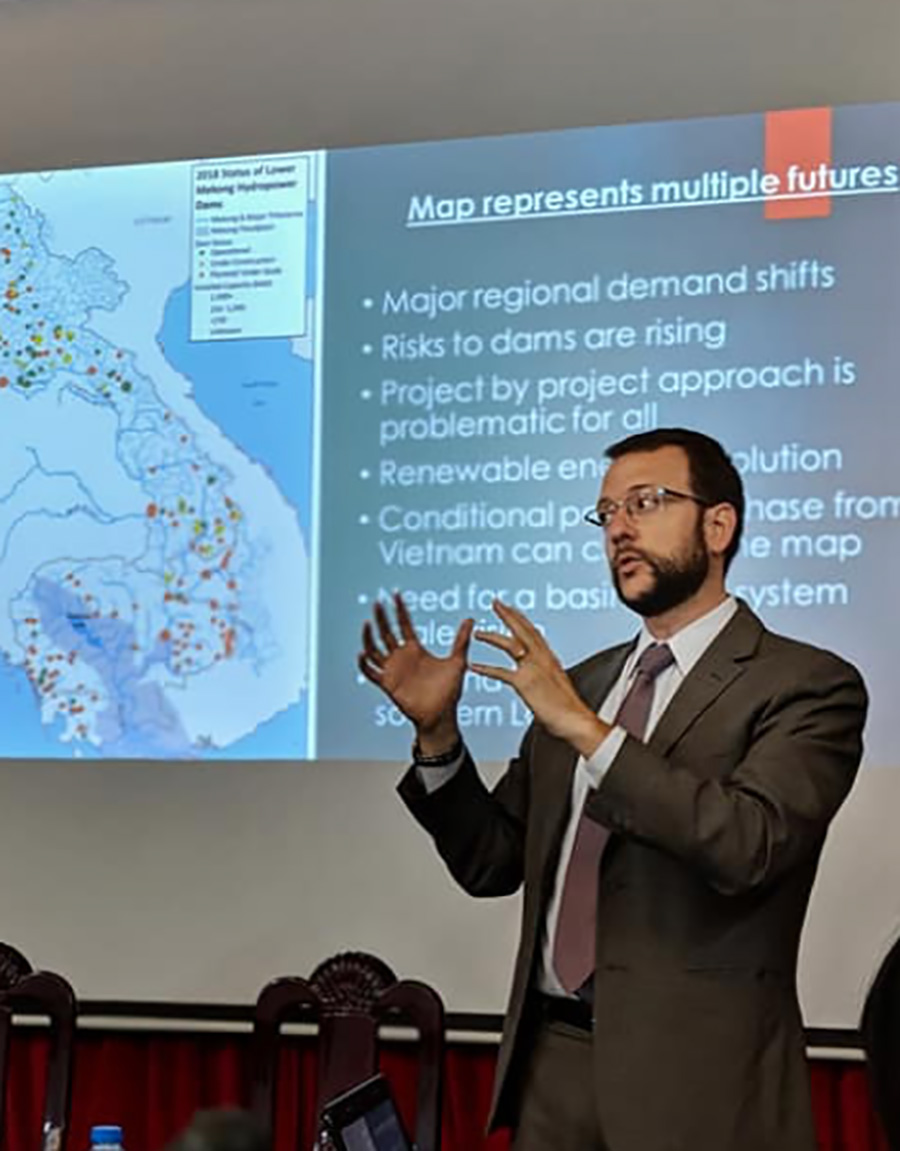Brian Eyler ’00 discovered his love for the Chinese language during a Bucknell study-abroad program in Beijing. After graduation, he lived in China for 15 years, traveled all over Southeast Asia, and started the influential website EastBySoutheast.com — a forum for news, expert opinion and analysis on China and Southeast Asia.
He later directed IES Abroad’s centers in Beijing and Yunnan province, helping American students getting their first taste of East and Southeast Asia.
But repeated academic visits to countries such as Laos, Vietnam and Cambodia alerted Eyler to the gathering disaster of unsustainable development along the Mekong River. With time running out to save the Mekong region, Eyler abandoned academia.
“It became clear to me that the timeline for impacting sustainability and environmental outcomes in those countries was very narrow,” Eyler says. “Instead of teaching about what was going on there, I decided I’d search for a position that would allow me to have a degree of impact on those outcomes.”
This search brought Eyler to the Washington, D.C.-based Stimson Center, a nonprofit, nonpartisan think tank that strives to enhance international peace and security through a combination of analysis and outreach. In his current role as director of Stimson’s Southeast Asia program, Eyler is helping to build a more sustainable future for the Mekong.
Eyler says new coal and hydroelectric projects displace people and undermine sustainable lifestyles along the Mekong’s banks. “Cambodia is a country that generates over 500,000 tons of wild-caught fish each year,” Eyler says. “The way Cambodia builds dams is going to negatively impact that fish catch. But we have been providing convincing arguments to government-level stakeholders to turn Cambodia into the ‘solar belt of Southeast Asia.’ ”
Eyler also made his argument for a sustainable Mekong basin in The Last Days of the Mighty Mekong, published by Zed Books. His 2019 book provides a comprehensive look at environmental and social affairs in the region, offering portraits of communities along the river and high-level glimpses of how regional governments talk about regional development.
The book may sound like an exotic trip — and it does aim to engage the reader — but Eyler stresses that it is as rigorous in approach as his academic and think-tank projects.
“The book is often described as a travelogue, but I think a better way to describe it is as a collection of ethnographic narratives,” Eyler says. “These are communities I go back to over and over again, with established relationships there, to get local knowledge and perspectives rather than glancing observation.”
— Michael Agresta
